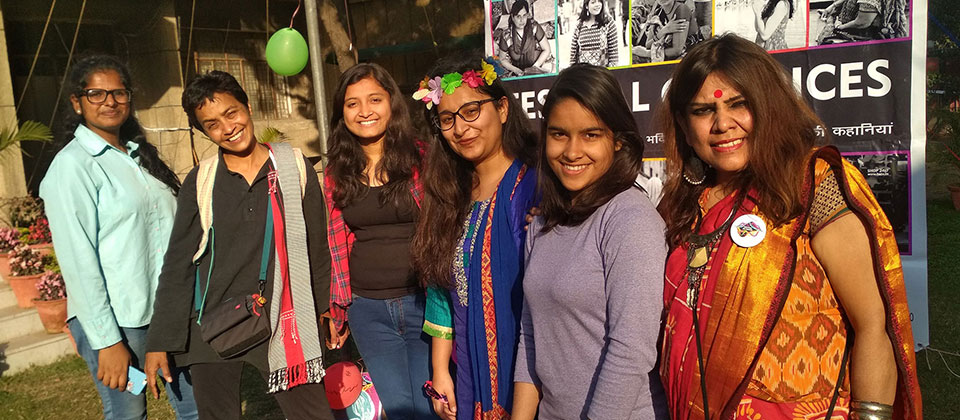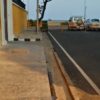-
 MITTIKAenriches lifespaces
MITTIKAenriches lifespaces -
 Creative
Creative -
 Democratic
Democratic -
 Dialogic
Dialogic -
 Arts-based
Arts-based -
 Inclusive
Inclusive -
 Multi-sectoral
Multi-sectoral -
 Intersectional
Intersectional -
 Rights based
Rights based

Festival of voices
WHY
Equality calls for a change in the dominant narratives. These dominant narratives are often monolithic. They supply a script around which lives are to be lived; they explain away systemic violence as inevitable for larger greater good. These dominant narratives are propagated and sustained by vehicles of mass media, cultural norms and are deeply institutionalized. For change, we need to engage with them, confront them and counter them.
The dialogue with ‘the dominant narrative’ requires another – a counter narrative. This obviously cannot be another monolith, but a constellation wherein the sparkling story of each individual finds space to breathe, move and relate with others. The deafening silence can’t be countered with a singular scream but requires polyphony – a multitude of voices. From this seed emerged the project model of Festival of Voices.
What
With stories of Delhi’s women at the centre, and young people as leaders, this project seeks to contribute to break silence, fear and hopelessness and progressively empower, enhance engagement, and unite diverse citizens in support of gender justice.
HOW
By design, Festival of Voices creates opportunities for young people to grow as change agents as they research and re-read a range of stories of Delhi’s women, foreground the stories through diverse on-ground and online events, and engage diverse citizens with women’s issues to strengthen the call for gender equality.
The stories the young people research, on the other hand, highlight the lived experiences of diverse women of Delhi, who, in challenging situations, have stood their ground, overcame fear, challenged norms, disrupted barriers and made the city their space.
TO WHAT END
To foreground the strength, perseverance, and resilience of women in order to challenge and influence cultural norms and roles and build an alternative future – a future where people are aware of women’s experiences and sensitive to women’s rights; a future where girls and women are valued, are safe, have space and are recognized for who they are – equal.
IMPACT TILL DATE
- The project built capacities of over 40 young people as change agents, who in turn curated, led and managed different components of the project.
- 108 stories of women of highly diverse profiles were researched. The diversity of issues they encountered acted as a strong base for building stakeholder engagement.
- 47 on-ground outreach events were conducted with a range of communities, using theatre, dance and movement, films, storytelling, slam poetry, magic, art etc.
- The on-ground events engaged 4957 people and opened safe spaces where people could have conversations about gender and share personal stories. As more and more stories emerged, the systemic nature of violence that women faced in their everyday life became evident and participants united on the need for safer spaces for women in the city.
- An intensive online campaign was conducted, engaging 126448 people.
- 37 institutional partnerships/ collaborations were built in order to implement the project activities.
Partners and collabrators
Support partners: Oxfam India, KfB-Austria, Population Foundation of India
FOV Youth Associates
How the stories traveled
[fm_carousel id="2"]
Watch stories
[fm_carousel id="1"]
Read FOV blogs

Lorem Ipsum is simply dummy text of the printing and typesetting industry.
Lorem Ipsum is simply dummy text of the printing and typesetting industry. Lorem Ipsum has …
